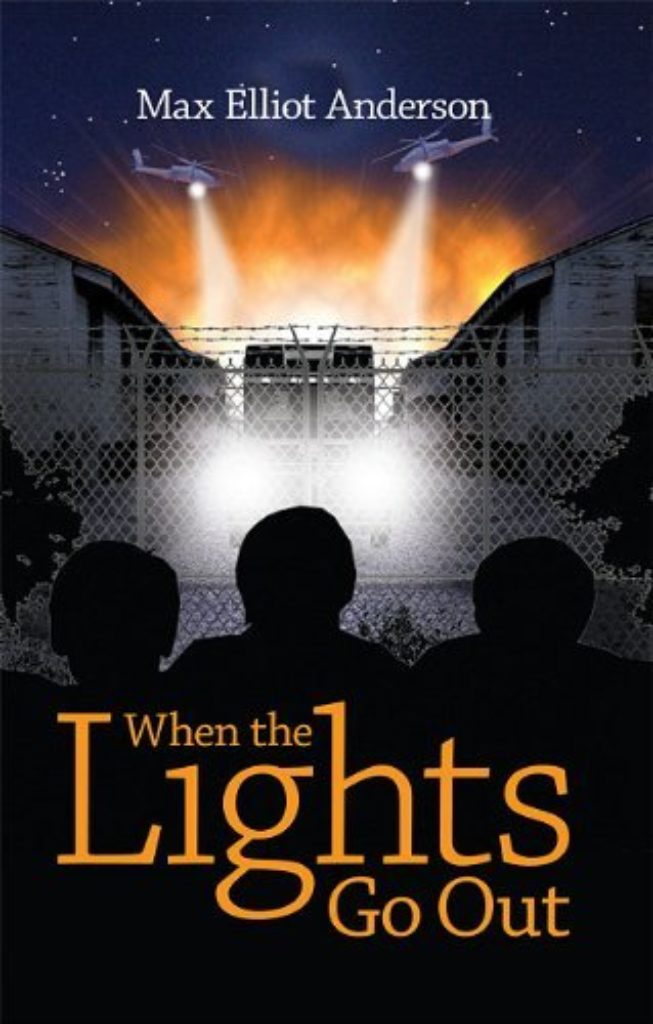This action adventure story by Max Elliot Anderson is published by Comfort Publishing, LLC, and is written for kids ages 13 to 17 years. The age range reflects readability and not necessarily content appropriateness.

This action adventure story by Max Elliot Anderson is published by Comfort Publishing, LLC, and is written for kids ages 13 to 17 years. The age range reflects readability and not necessarily content appropriateness.
Twelve-year-old Peyton Aldrich wants to be just like his dad, an Army colonel who works on top secret military projects. Dad joined the armed forces and became a Ranger after 9/11, when he developed an overwhelming desire to protect his country and those he loves.
Peyton and his family have just moved to another new base, this one in the middle of nowhere. Peyton becomes fast friends with Dave, the chaplain’s son, and Gill, whose dad works in the motor pool. The boys decide to train like Rangers, using the base obstacle course. They work their bodies hard but also strive to incorporate Ranger practices such as teamwork and resilience. They only wish they had a real mission of their own.
While visiting Gill’s dad at work, the boys overhear some civilian employees engaged in a suspicious conversation. They discover the civilians are planning to steal a powerful weapon that’s scheduled to make a brief, covert stopover at the base. The boys arrange to camp out at Dave’s, and then sneak out to spy on the men. The terrorists leave a written message for their contacts, telling them to strike when the lights go out on the base. The boys see the note.
Led by Peyton, they make elaborate plans to thwart the terrorists. They borrow lights and a generator and practice even harder at the obstacle course. When the night of the theft arrives, the boys are able to prevent the terrorists from accomplishing their mission by providing light powered by a generator. Peyton and his friends quickly learn the whole plot was actually a military drill to see if the soldiers on base were prepared for such an incident. Peyton’s dad admits his team wouldn’t have succeeded in stopping a real theft, and that he and his men have work to do. His superior, the general, applauds the young men for their alertness and says he’ll be happy to recommend them as potential Rangers someday.
Peyton’s friend Dave is the son of the base chaplain. Gill sometimes ribs Dave for being a preacher’s kid. On one occasion, Dave tells his friends about his dad’s annual 9/11 sermon. He says his dad talks about the Devil being similar to a terrorist, who finds a person’s weakest points and attacks there.
Gill laughs and refers to the Devil as the guy at Halloween with horns, a pitchfork and a long, funny tail. Gill also teases Dave when he says his dad fights terrorists like Gill and Peyton’s dads, except they’re terrorists you can’t see. Peyton says he and his dad might like to attend the next 9/11 church service.
None
The general praises the boys for being alert and offers to recommend them for Ranger training in a few years. Dad moves the family around a lot because of his top secret military work. He feels strongly about the importance of protecting his country in the wake of terrorist events like 9/11. Dave’s mom always brings a big tray of breakfast treats to the boys after their nights of camping out at Dave’s house.
None
None
If your children have read this book or someone has read it to them, consider these discussion topics:
Do you agree with him? Explain your answer.
Why is it important to be alert to the possible threats around us?
How well do you think the boys handle their situation and deal with the information they discover?
What are some skills or lessons the boys learn through their Ranger training?
Book reviews cover the content, themes and world-views of fiction books, not their literary merit, and equip parents to decide whether a book is appropriate for their children. A book’s inclusion does not constitute an endorsement by Focus on the Family.
You can request a review of a title you can’t find at reviewrequests@family.org.